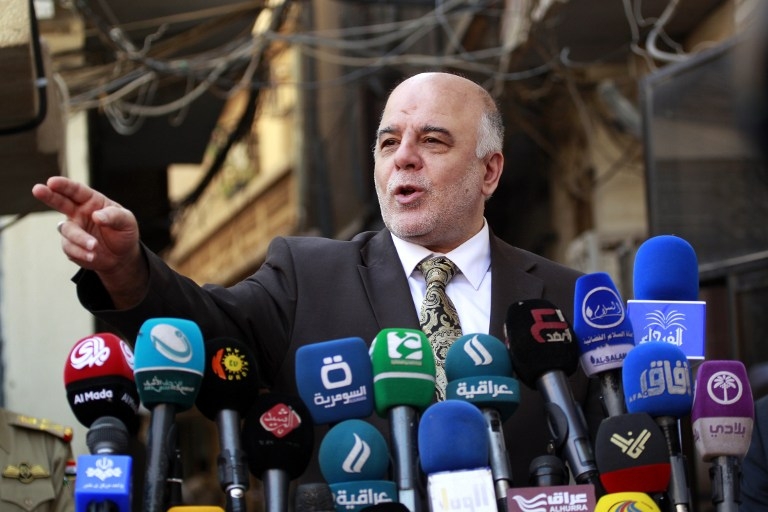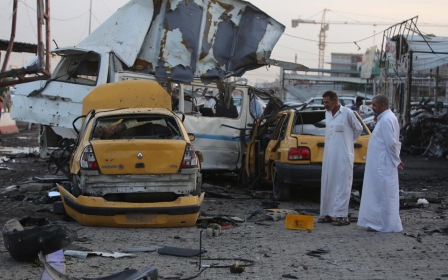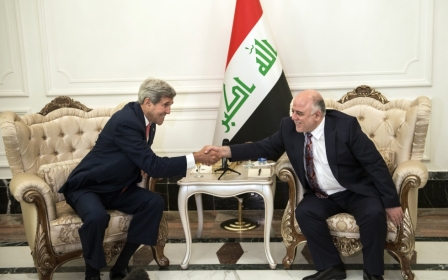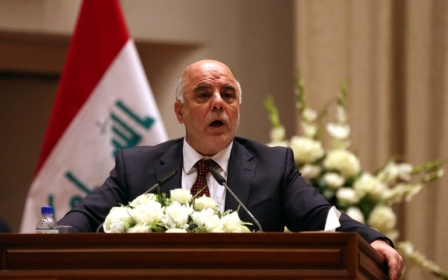Iraqi PM on first visit to Tehran since appointment

Iraqi Prime Minister Haidar al-Abadi arrived in Tehran late Monday on his first visit to Iran since taking office as a result of the crisis triggered by the advance of Islamic State militants.
Iraqi state television said Abadi, whose country remains beset by IS, arrived shortly before midnight for talks with Iranian officials including President Hassan Rouhani about the ongoing battle, which has drawn in US-led coalition air strikes.
IS fighters hold towns just a few miles (kilometres) from the Iranian border, and Tehran has been reported by senior Kurdish officials to have deployed troops inside Iraq.
Abadi's visit is all the more important, given his surprise elevation to the premiership after the removal in August of Nuri al-Maliki, the Iraqi prime minister whom Iran had resolutely backed since 2006 until this summer's cataclysmic events.
Maliki's armed forces failed in the face of a lightning surge by IS fighters into Iraq from Syria, eventually causing him to step down from the top job after Iran publicly endorsed Abadi's candidature as premier.
No schedule of Tuesday's meetings has been released, but Abadi's trip is expected to last for only one day. Iran has supported the Baghdad government throughout the crisis and was the first country to send arms to Kurds fighting IS militants in northern Iraq.
Major General Qassem Suleimani, the chief of Iran's elite Quds Force, has been spotted in Iraq since the crisis broke and is believed to be playing a key role in coordinating military operations.
Iran and its majority Shiite neighbour Iraq have been close since the removal of Sunni leader Saddam Hussein in the US-led invasion of 2003.
Speaking earlier in the city of Najaf after a rare meeting with the most revered figure among Iraqi Shiites, Grand Ayatollah Ali al-Sistani, Abadi ruled out any foreign ground intervention to assist government forces in retaking territory lost to militants. Iraqi state television said it was the first time in four years that Sistani had met a high-ranking Iraqi government official.
"No ground forces from any superpower, international coalition or regional power will fight here," Abadi told reporters, reiterating previous remarks on the issue.
"This is my decision, it is the decision of the Iraqi government."
The prime minister condemned unnamed people in the troubled Anbar province in western Iraq and Salah el-Dinn north of the capital Baghdad for calling for foreign intervention, reported Al Jazeera. Both areas have seen fierce fighting in recent weeks and months, with Anbar in particular on the verge of falling entirely to IS. Some Iraqi military commanders, officials and Sunni tribal leaders in the areas most affected by the unrest have argued the world should step up its involvement from air strikes to a ground intervention against IS.
New MEE newsletter: Jerusalem Dispatch
Sign up to get the latest insights and analysis on Israel-Palestine, alongside Turkey Unpacked and other MEE newsletters
Middle East Eye delivers independent and unrivalled coverage and analysis of the Middle East, North Africa and beyond. To learn more about republishing this content and the associated fees, please fill out this form. More about MEE can be found here.




